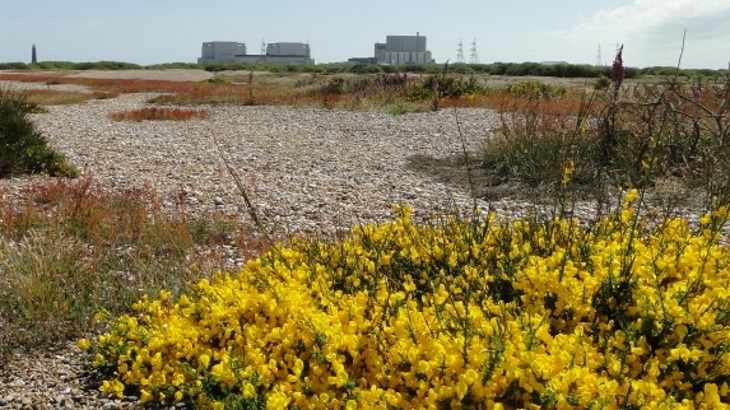The UK government and EDF have agreed improved arrangements to safely and efficiently decommission Britain’s seven Advanced Gas Reactor (AGR) nuclear power plants that are scheduled to reach the end of their operational lives this decade. The Department for Business, Energy and Industrial Strategy (BEIS) said the deal, which was signed yesterday, will save the UK taxpayer about GBP1 billion (USD1.4 billion), as EDF and the Nuclear Decommissioning Authority (NDA) forge a new partnership.

Dungeness B nuclear power plant (Image: EDF)
Earlier this month, EDF announced that it had decided not to restart the first of the AGRs, Dungeness B, and instead move it into the defuelling phase with immediate effect. BEIS said the new agreement delivers better value for money for the taxpayer and means EDF will aim to shorten the time it takes to safely remove the fuel from the power stations as they come offline, before working closely with the NDA to transfer ownership of the stations to the NDA. With NDA having the "expertise and the economies of scale" of working on older Magnox stations and the AGR nuclear reactors combined, will ensure the long-term clean-up of these sites is done more efficiently, BEIS said.
The AGRs closure will not affect the UK’s energy supply, as energy from renewables has more than quadrupled since 2010, BEIS said. The UK government has also committed to making a final investment decision on at least one large-scale nuclear power station by the end of this Parliament, in 2024, alongside harnessing new and advanced nuclear technology.
Minister of State for Energy Anne Marie Trevelyan said the deal is part of the government's "wider commitment to the future of nuclear energy".
Simone Rossi, CEO of EDF Energy, added that the revised arrangements "provide the certainty we need to plan and deliver safe and cost-effective defueling". They also provide the company's employees and supply chain partners with "important clarity", he added.
EDF had originally been responsible for total lifetime decommissioning of the AGR stations, which comprise Torness and Hunterston B in Scotland, Dungeness B in Kent, Hartlepool in Teesside, Heysham 1 and 2 in Lancashire and Hinkley Point B in Somerset. BEIS said the revised arrangements will retain their involvement, while "making the most" of the expertise of the NDA.
NDA CEO David Peattie said the work will be undertaken by NDA's subsidiary Magnox Ltd. "This work is of national importance and we now look forward to working with EDF to ensure the seamless transfer of stations in the coming years."
The arrangement does not cover other nuclear power plants in the UK. As part of the investment agreement, operators of new nuclear sites such as EDF's Hinkley Point C, are legally obliged to meet the full costs of decommissioning and their full share of waste management and disposal costs, "ensuring taxpayers never have to pick up the cost", BEIS said.
EDF will complete the first stage of the agreement by removing the fuel from the AGRs under a new incentive arrangement, which means they can earn up to GBP100 million for good performance but face up to GBP100 million in penalty for poor performance. It does not include Sizewell B, which is a pressurised water reactor and is scheduled to continue operating until 2035.
In a separate statement, EDF said it aims to take between three-and-a-half to five years to complete defueling at each site, but Dungeness B will take longer to defuel than the other six AGRs "due to its unique design and requirement for extra preparation time".
Tom Greatrex, CEO of the Nuclear Industry Association said the AGRs had been "the most productive low-carbon assets in British history", avoiding the emission of 1.2 billion tonnes of CO2. The country must continue "to maximise safe, reliable generation" from its existing fleet, he said, and "to invest urgently" in new capacity to replace the AGRs.
Researched and written by World Nuclear News